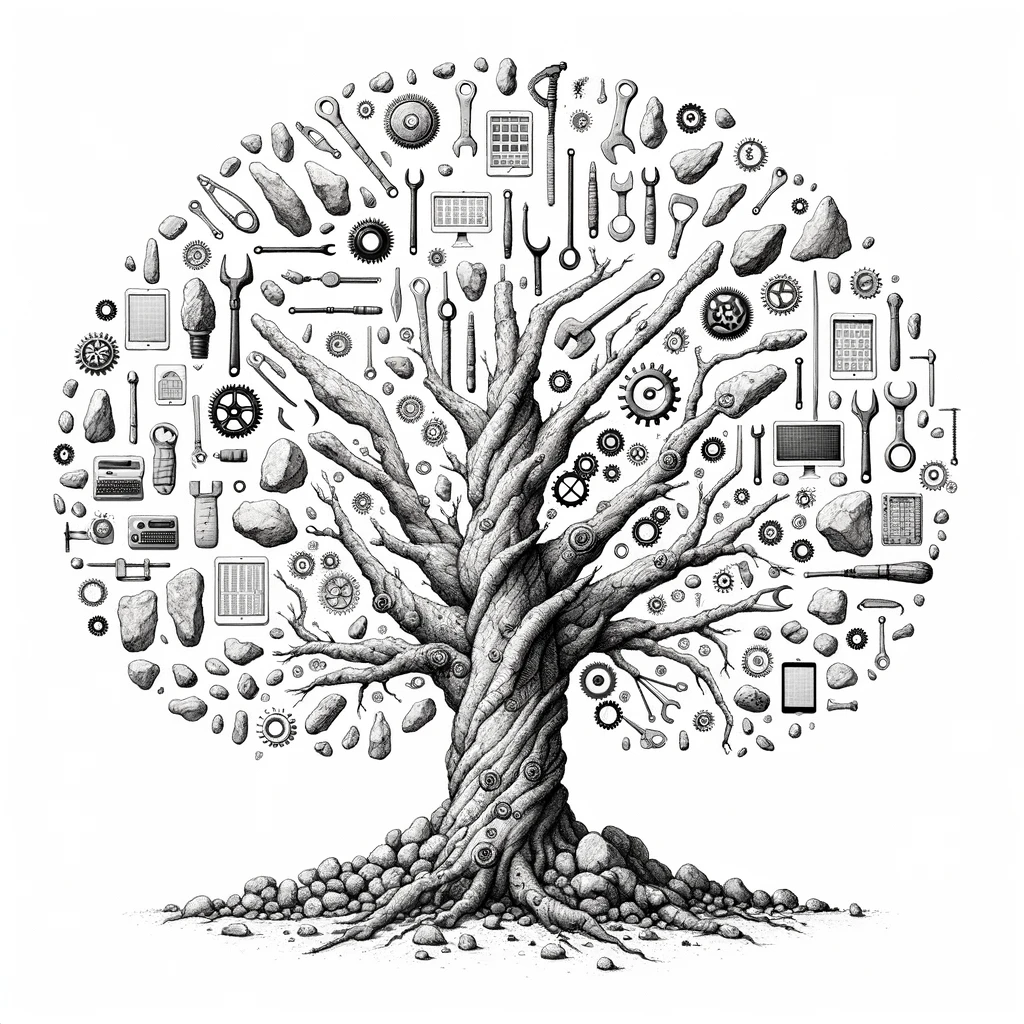General-purpose technology

The concept of general-purpose technology (GPT) is a subject of debate among economists, historians, and technologists, but generally speaking, there have been only a few technologies that meet the criteria of being transformative across various sectors and over long periods of time.
According to the authors of Economic Transformations there have been around 25 commonly cited GPTs*. Below is a table from Wikipedia that lists them. Technological advancements don't follow a predictable pattern. Instead, they overlap and amplify in erratic ways over time.
The pace of change is astounding. Between 9,000 BC and 0 BC, eight GPTs emerged. From 0 AD to 1900, there were nine GPTs. In just the past 100 years, another eight GPTs have come into play.
Technological progress is accelerating, with new inventions cropping up in increasingly shorter intervals. When technologies emerge they don't evolve in isolation; they intersect and amplify each other. A wave of emerging technologies make the next decade look to be unprecedentedly productive, marking a monumental shift in human potential and societal structure, while bringing both hazards and groundbreaking advancements.
In Mustafa Suleyman's book "The Coming Wave," he discusses how civilization will be shaped in the coming decades by rapidly advancing GPTs such as quantum computing, artificial intelligence, synthetic biology, robotics and renewable energy. He suggests that we should start getting ready for groundbreaking changes that are fast approaching by developing containment plans for things like AI. The future he envisions, possibly just decades away, is astonishing to contemplate.
In a few decades, I predict most physical products will look like services. Zero marginal cost production and distribution will make it possible. The migration to the cloud will become all-encompassing, and the trend will be spurred by the ascendancy of low-code and no-code software, the rise of bio-manufacturing, and the boom in 3-D printing. When you combine all the facets of the coming wave, from the design, management, and logistical capabilities of AI to the modeling of chemical reactions enabled by quantum computing to the fine-grained assembly capabilities of robotics, you get a wholesale revolution in the nature of production.
Foods, drugs, home products, indeed almost anything might be 3-D printed, or bio-produced, or made using atomically precise manufacturing close to or at the site of use, governed by sophisticated AIs fluidly working with customers using natural language. You simply buy the execution code and let an AI or robot do the task or create the product. Yes, this glosses over a hideous mass of material complexity, and yes, it’s a long way off. But squint into the distance, and this scenario is clearly plausible. Even if you don’t buy the whole argument here, it seems impossible that these forces will not create major changes and new concentrations of value throughout the global economic supply chain.
* Note: While many are acquainted with ChatGPT, it's worth highlighting that for them, GPT stands for Chat Generative Pre-trained Transformer. They likely recognized that GPT holds another significance they aim to achieve.